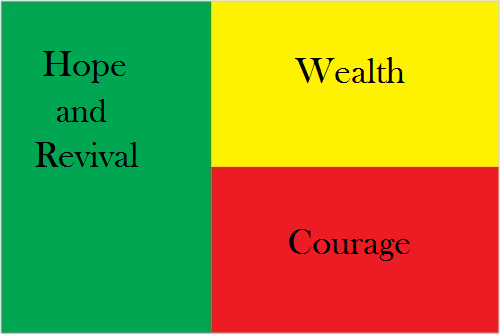
About the Author
Ivy is the researcher and writer behind The African Gourmet, blending African food, history, and cultural storytelling. Her work is cited by universities, Wikipedia, major news outlets, and global food writers.
Start Here: Explore Africa’s Living Knowledge
Learn Africa through science, stories, recipes, proverbs, history, and geography — interconnected, just as life is.
Recipes Explain Politics
🍚 When Rice Recipes Become Revolution
What if your grandmother's rice recipe could explain the Liberian Rice Riots of 1979?
"In Liberia, rice isn't just food—it's life, identity, and sovereignty. When the government proposed raising rice prices in 1979, they weren't just adjusting economics; they were threatening every grandmother's ability to feed her family according to traditions passed down for generations. The riot that followed wasn't about politics—it was about the sacred right to cook your family's rice recipe."
🍲 The Deeper Recipe:
- Ingredients: Colonial trade patterns + Urbanization + Economic inequality
- Preparation: Political disconnect from daily survival needs
- Serving: 40+ deaths, regime destabilization, and a warning about ignoring cultural fundamentals
This is African Gourmet analysis: understanding how the food in grandmother's pot connects to the protests in the streets. The recipes we inherit carry not just flavor, but the entire history of our political and economic struggles.
Korea & Africa: Top Reads
Africa × World: Editor’s Picks
Cross-continental food, science, history, and cultural exchanges.
African Gourmet FAQ
Frequently Asked Questions
Why "The African Gourmet" if you cover more than just food?
Great question! While many associate "gourmet" exclusively with cuisine, its true meaning is "a connoisseur" – someone with refined taste and deep expertise. For over 18 years, I've served as a gourmet of African culture at large, savoring and presenting the continent's rich history, vibrant traditions, timeless wisdom, and contemporary stories with the same discerning palate one would apply to fine food. The name reflects my commitment to curating Africa's cultural wealth with authority and passion.
What makes The African Gourmet different from other culture sites?
With 18 years of consistent publishing, I offer depth and continuity that's rare online. I don't just report on African culture – I contextualize it, connecting traditional wisdom with modern realities, and food with folklore, politics, and daily life. It's a holistic view of Africa's past, present, and future, all through the lens of a seasoned cultural storyteller.
How do you choose what to write about?
My content selection is driven by a desire to showcase Africa's incredible diversity and challenge stereotypes. I balance covering foundational cultural elements (like proverbs and recipes) with timely analysis of current events (like the AGOA trade agreement). The goal is always to educate and illuminate the complex, dynamic realities of the African continent.
Do you focus on specific regions of Africa?
My coverage spans the entire continent – from North to South, East to West. While certain stories may focus on specific countries or regions, my mission is to represent the breathtaking diversity of 54 countries and thousands of cultures. I make a conscious effort to include both well-known and underrepresented cultures in my work.
Can I request a topic or contribute to the site?
I welcome thoughtful topic suggestions from engaged readers! While I maintain editorial control to ensure quality and consistency, I'm always interested in hearing what aspects of African culture you're curious about. Feel free to reach out through my contact page with your ideas.
How can I support The African Gourmet's work?
The greatest support is engaged readership – sharing articles you find valuable, participating in discussions, and helping spread cultural understanding. Following the blog and sharing it with others who would appreciate this unique perspective on Africa helps this 18-year labor of love continue to grow and reach new audiences.







